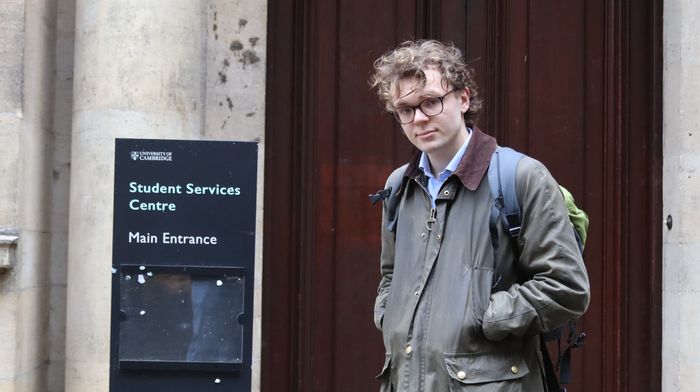Tolerating anti-intellectualism supports the ‘career-ification’ of university
The trolling of Dr. Ally Louks was about far more than smell, argues Max La Bouchardiere

When Dr. Ally Louks posted on “X” that she completed her PhD at the University of Cambridge last month, she was victim to venomous and misogynistic attacks for her thesis on ‘Olfactory Ethics: The Politics of Smell in Modern and Contemporary Prose’. This was more than trolling. Speaking to friends and family, and reading some of the comments on X, I’ve realised just how pervasive our acceptance of right-wing, neoliberal ideology has become. The idea that universities are conveyor belts towards a career — and that different degrees are naturally unequal instruments of financial success — has utterly overshadowed other reasons for higher education. Anti-intellectualism, once a fairly fringe position, has taken hold of the twenty-first century.
Many attacks on Louks were fuelled by a patriarchal feminization of academia and a right-wing fetishisation of ‘value’ in society. ‘Woke’ women, in ‘woke’ academia, pursuing ‘ultra-esoteric’ post-graduate examinations of intersectional power structures are doing impractical and valueless work — apparently. Still, where many online rebuttals spoke of the practicality of humanities degrees, I’m always hesitant to enter into discourses around utility when defending academia. By using similar language to make a defence that “my humanities degree is actually practical because of xyz”, you inadvertently legitimise the neoliberal, anti-intellectual worldview.
“Anti-intellectualism, once a fairly fringe position, has taken hold of the twenty-first century”
It’s a worldview where everything is measured in business terms. Everything must have an instrumental purpose for the economy. And everything is quantified and stratified by efficiency and utility. Academia must not respond to the anti-intellectual tirade by recapitulating the ‘practicality’ of humanities degrees, otherwise it is in danger of legitimising university’s ‘career-ification’. Conforming to the neoliberal language of “utility,” when discussing higher education, is slowly turning our academic institutions into assembly lines producing employees, rather than serving as foundations for an intellectually critical and curious society.
It is wholly understandable that financial pressures generate questions of utility when thinking about higher education. However, this is not an excuse for anti-intellectualism. Denigrating the humanities in the name of financial return is also unduly dismissive of the worth of those degrees in themselves. Far-right figures like Farage have exploited and exacerbated financial stresses for the humanities by dichotomising them with STEM courses, who should receive free tuition in his eyes. When some but not all degrees are free, or a norm emerges that they should be, going vocational is attractive. Everything else is financially reinforced as pointless if not harmful to one’s socioeconomic standing.
“Really, us humanities and social science students are impediments to heedlessly accepting neoliberalism’s cultural hegemony”
Humanities degrees are seen as a waste of money, or a privilege only for the affluent, out-of-touch elite. Patriarchal and conservative anti-intellectualism is a crucial facet of neoliberalism in this operation. It makes intellectual curiosity seem emasculating, vain, economically stupid, and pedantically facile. Dr. Ally Louks was cast as the epitome of the ‘college-educated white woman who’s never lived in the real world’ stereotype. This further cements patriarchy, at the same time as it perpetuates the norm that academia and the humanities are worthless and impractical endeavours.
Really, us humanities and social science students are impediments to heedlessly accepting neoliberalism’s cultural hegemony. Treating university like a business is abetted by patriarchy, which continues to stratify life choices through a gendered lens of practical ‘male’ and impractical ‘female’ work. This is indicative of capitalism’s success in instilling that everything must have a profit motive, and that men are natural drivers of more ‘productive’ industry. To be a ‘man’ is to be a loyal and manual worker. A woman does frivolous work, and so an intelligent woman doing academic work is, of course, indicative of the frivolity of contemporary academia.
Capitalism has further instilled that individuals must maximise their capital, and every sector of society must run with bureaucratic efficiency. Higher education and humanities degrees are thus worthless: “Why waste my time writing a thesis about the political implications of smells?” quickly mutates into “why would someone else waste their time doing this, and why is my tax going towards funding them?”. Historically-targeted groups like women then become victim to financial blame, and so patriarchy perpetuates.
Therefore, universities cannot react to right-wing and patriarchal anti-intellectualism by conforming to discourses of “utility”. We must not accept that university is merely a production line into a career. Even if I do find considerable irony when LinkedIn and business articles state that they love humanities and social sciences graduates, I reject that this is the purpose of our academic institutions. Rather, personal interest, passion, and intellectual curiosity must become valid metrics by which we pursue higher education. The drama and ignorance surrounding Dr. Ally Louks actually reinforces the importance of these. Maybe the humanities should be given greater cultural significance if people are combusting at her thesis title.
 News / Colleges charge different rents for the same Castle Street accommodation2 March 2026
News / Colleges charge different rents for the same Castle Street accommodation2 March 2026 News / News in Brief: waterworks, wine woes, and workplace wins 1 March 2026
News / News in Brief: waterworks, wine woes, and workplace wins 1 March 2026 News / Angela Merkel among Cambridge honorary degree nominees27 February 2026
News / Angela Merkel among Cambridge honorary degree nominees27 February 2026 News / Climate activists protest for ‘ethical careers policy’1 March 2026
News / Climate activists protest for ‘ethical careers policy’1 March 2026 News / King’s hosts open iftar for Ramadan3 March 2026
News / King’s hosts open iftar for Ramadan3 March 2026









